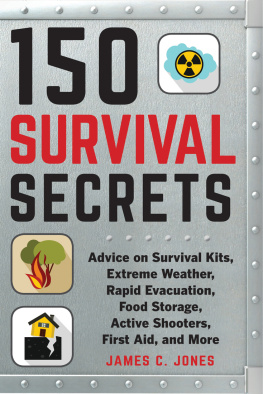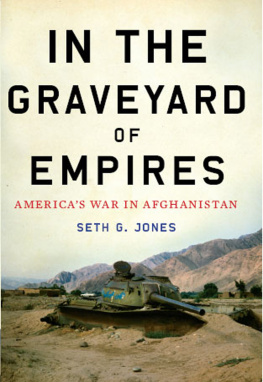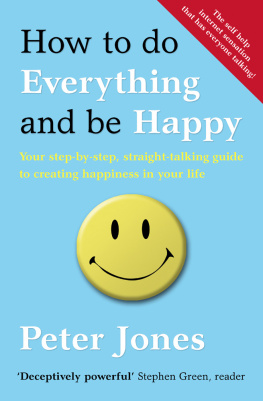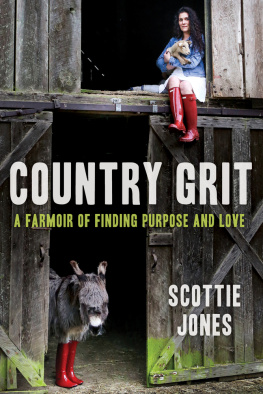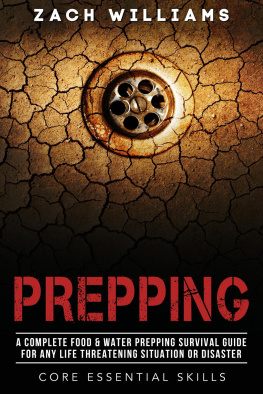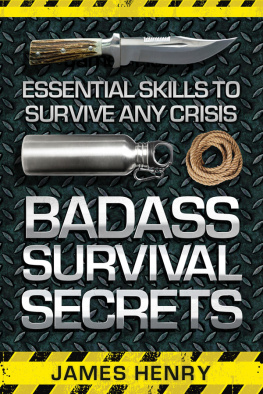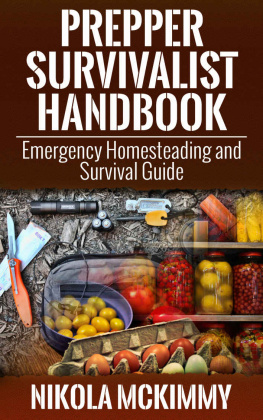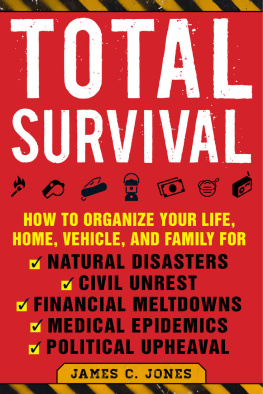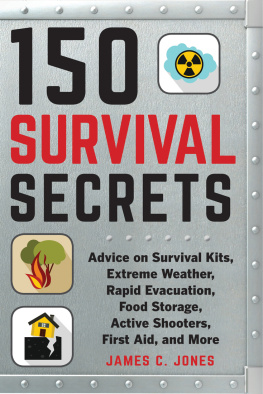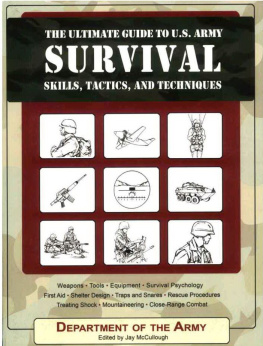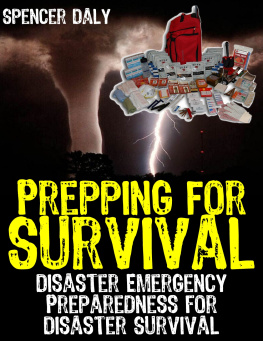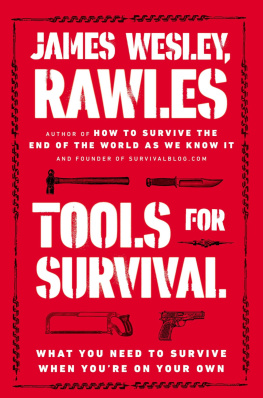


Copyright 2019 by James C. Jones
All rights reserved. No part of this book may be reproduced in any manner without the express written consent of the publisher, except in the case of brief excerpts in critical reviews or articles. All inquiries should be addressed to Skyhorse Publishing, 307 West 36th Street, 11th Floor, New York, NY 10018.
Skyhorse Publishing books may be purchased in bulk at special discounts for sales promotion, corporate gifts, fund-raising, or educational purposes. Special editions can also be created to specifications. For details, contact the Special Sales Department, Skyhorse Publishing, 307 West 36th Street, 11th Floor, New York, NY 10018 or .
Skyhorse and Skyhorse Publishing are registered trademarks of Skyhorse Publishing, Inc., a Delaware corporation.
Visit our website at www.skyhorsepublishing.com.
10 9 8 7 6 5 4 3 2 1
Library of Congress Cataloging-in-Publication Data is available on file.
Cover design by Tom Lau
Print ISBN: 978-1-5107-3778-5
Ebook ISBN: 978-1-5107-3779-2
Printed in the United States of America.
This book is dedicated to the past and present members of Live Free USA, Americas first and oldest survival and preparedness advocacy and education organization, founded in 1968. Their loyalty, support, and friendship for five decades has been my greatest honor and inspiration.
Table of Contents
Introduction
About this Book
The format of this book is based on the text of 150 Questions for a Guerrilla by General Alberto Bayo, first published in 1963 by Robert K. Brown, Inc. Bayo was one of Castros generals during the Cuban revolution, and so his book was popular for a few years. Bayos book did not address many survival-related issues, and was mainly concerned with guerrilla tactics and communist strategies.
I have been inspired by Bayos work in using the question-and-answer format and the combination of practical advice and philosophical concepts as an effective method of conveying information and inspiration to the reader. The questions here fall into two categories. There are the obvious how to survive questions such as, what survival items should a survivalist carry on his or her person at all times? I draw my answers for these types of questions from more than forty years of studying disasters and human behavior while teaching over one hundred classes and field operations. I also draw on my forty-year career in industrial safety management and experiences as an EMT and in various emergency volunteer organizations. The second category of questions relate to the survivalist psychology and philosophy, containing questions such as What is a survivalist? As a high-profile survivalist since the early 1980s, I have been frequently challenged by reporters and interviewers to explain and justify survivalism and its practices. Here I will endeavor to clarify and establish the meaning of the word survivalist from my own perspective. I hope this book can aid in establishing the positive and responsible foundations of the true survivalist for the lay reader. I have intentionally mixed practical questions and answers with those related to psychological and philosophical subjects in order to establish their equal importance and underline the relationships of these elements to survival thinking. Some amount of redundancy is unavoidable, as the answers to the questions often overlap in some of the content. I tried to add a bit of different information with each entry, but if a point comes up several times, then it simply emphasizes its importance and demonstrates that it is worthy of repetition.
This book provides me the opportunity to cover numerous survival subjects and share survival information from my many articles that were not included in my previous books. I felt obligated to provide complete instructional answers to each question rather than simple, abbreviated tips. Answers range from a paragraph to several pages, the latter instances demonstrating where I felt it was important to leave the reader fully informed and prepared.
Where necessary, I have added illustrations and photos to aid understanding. The challenge of 150 questions drew me to examine survival topics and scenarios that went beyond any of my previous books and articles. The complete mix of practical, psychological, and philosophical material covered in this book makes it closer to a true survivalist manifesto than any other survival book I have encountered. As always, my objective is to aid responsible citizens in their efforts to survive the increasing dangers and challenges of our times and attain greater levels of personal and family self-reliance.
Self Introduction
Born shortly before the outbreak of World War II, I was raised on the South Side of Chicago. My childhood was challenging, to say the least, as it was neither sheltered nor normal. In those days the South Side was still on the fringes of the city and there were still farms, woodlands and marshes to explore. I was building shelters and campfires by the age of eight. I felt safer and more comfortable in the woods than at home. There were months when food at home was scarce, or the water had been turned off, or the electricity went off for a while. At that time, we had a coal-burning furnace, and since we couldnt afford coal, many times I would take my sled or wagon and gather wood and coal along the railroad tracks to warm the house. The word survivalist may not have existed yet, but I certainly became one at an early age.
We were evicted from our home a month after I graduated from grammar school. My parents split up, and I began earning a few dollars from my two paper routes. Soon after, I worked at odd jobs throughout high school. I had to walk several miles to school, then walk home, and then walk several miles to my jobs. Having lost all of my winter clothing to the eviction, I had to get through that first winter walking in street shoes and a spring jacket in the snow and wind. I learned some true winter survival lessons there.
Around that time, the South Side of Chicago was just starting to go through the unrest and chaos that eventually boiled over into the riots of the 1960s and the ongoing violence that pervades the region to this day. Yes, urban survival tactics were a necessity.
Profilers will tell you that people that grow up under these conditions tend to be extremely self-reliant, cautious, and independent. Guilty as charged. I had many jobs after high school, and it seemed like I always wound up in charge of something. My final employer was a major chemical company. My tendency to recognize and analyze risks was quickly recognized there, and I was given a succession of safety-related responsibilities. As safety and health evolved into a recognized profession, schools and organizations began to provide certification courses in related skills including hazard recognition, hazard analysis, hazard control, incident investigation, safety management, and emergency planning. I took all of these courses and more. They proved crucial in that the skills taught there provided a scientific and organized foundation for the survival subject that I was teaching and advocating.
I had been teaching and learning survival skills with a group of friends for many years when the term survivalist attracted the attention of the media in the early 1980s. The misinterpretation of the word and the people and groups that the media were identifying as survivalists at that time was insulting and misleading. The image the media portrayed was of a selfish, violent, dangerous, and even hateful philosophy. In response to this unfair and distorted coverage, I did multiple interviews for major newspapers, magazines, and television stations. Live Free USA, the organization that I had created in the late 1960s, hosted several television and press visits to our survival training events, and the media even made some special programs about us. At this time, I underwent my training in public relations, while developing some writing and presentation skills. My article We Are Survivalists was a popular and often reprinted tract back then, and can be found on page 282.
Next page
